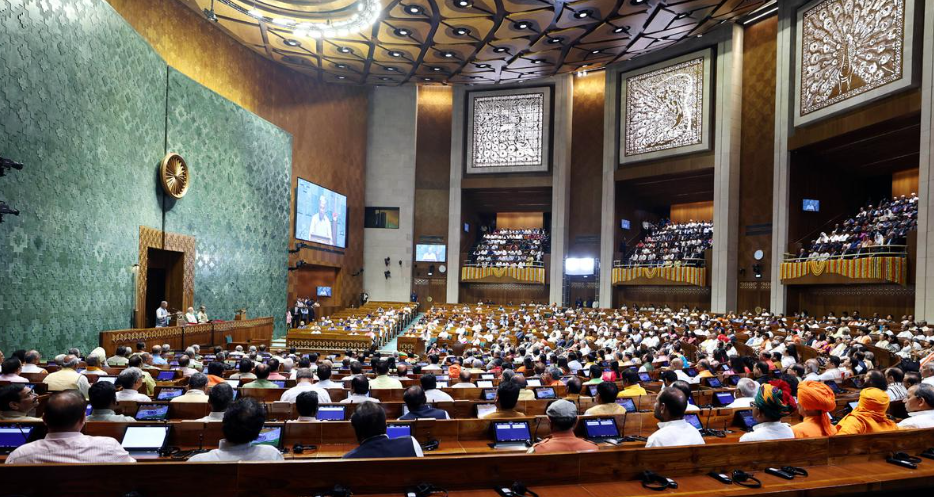Parliaments past, a mirror to changing dynamics (GS Paper 2, Indian Polity–Parliament)

Context
- The article reflects on the performance and trends in the 17th Lok Sabha, highlighting shifts in parliamentary focus, declining interest in national security, and emerging priorities in health and agriculture ministries.
Introduction:
- The 17th Lok Sabha concluded its proceedings on a Saturday, deviating from its usual schedule, raising questions about historical parallels and expectations for the 18th Lok Sabha.
Performance of Ministries:
- The Prime Minister’s Office faced a surge in questions from Rajya Sabha MPs, but only a fraction were answered, indicating waning interest in seeking answers.
- Ministries of Health and Family, and Agriculture and Farmers’ Welfare emerged as top priorities with the highest number of questions, reflecting evolving interests of elected representatives.
- Conversely, interest in matters of national security and internal affairs declined, with the Ministry of Home Affairs fading from prominence, raising concerns about shifting priorities.
- The Ministry of Finance witnessed a decline in parliamentary interest, indicating disengagement despite increased questions admitted for deliberation, signaling a commitment to transparency.
Impact of COVID-19:
- Despite disruptions in the educational landscape due to the pandemic, education remains among the top five Ministries subject to rigorous questioning, reflecting its enduring significance.
- However, there has been a rise in disallowed questions, casting doubts on oversight efficacy, especially in crucial sectors.
Trends in Parliamentary Proceedings:
- In the Lok Sabha, the percentage of disallowed questions showed a downward trajectory across successive Lok Sabhas, but the trend reversed in the Rajya Sabha.
- Zero Hour interventions witnessed a significant surge, indicating heightened focus on addressing pressing issues and seeking clarifications from the government.
- Other interventions like ‘Half-an-Hour Discussions’, ‘Short Notice Questions’, ‘Calling Attention’, ‘Short Duration Discussions’, and ‘Special Mentions’ saw dwindling usage.
Opportunities and Oversight:
- The 16th Lok Sabha demonstrated higher proactivity in question admission and discussions, but instances of oversight, like failure to raise privilege motions, underscored the need for accountability.
- Missed opportunities, such as the failure to discuss student suicides due to competitive exams in the Winter Session, highlight the need to address societal concerns through parliamentary channels.
- Changing parliamentary dynamics emphasise the need to revitalise legislative engagement to ensure accountability, foster constructive debate, and prioritise national welfare.
Conclusion:
- The evolving trends in parliamentary proceedings necessitate a renewed focus on accountability, constructive debate, and policy enactment for the welfare of the nation and its citizens.


